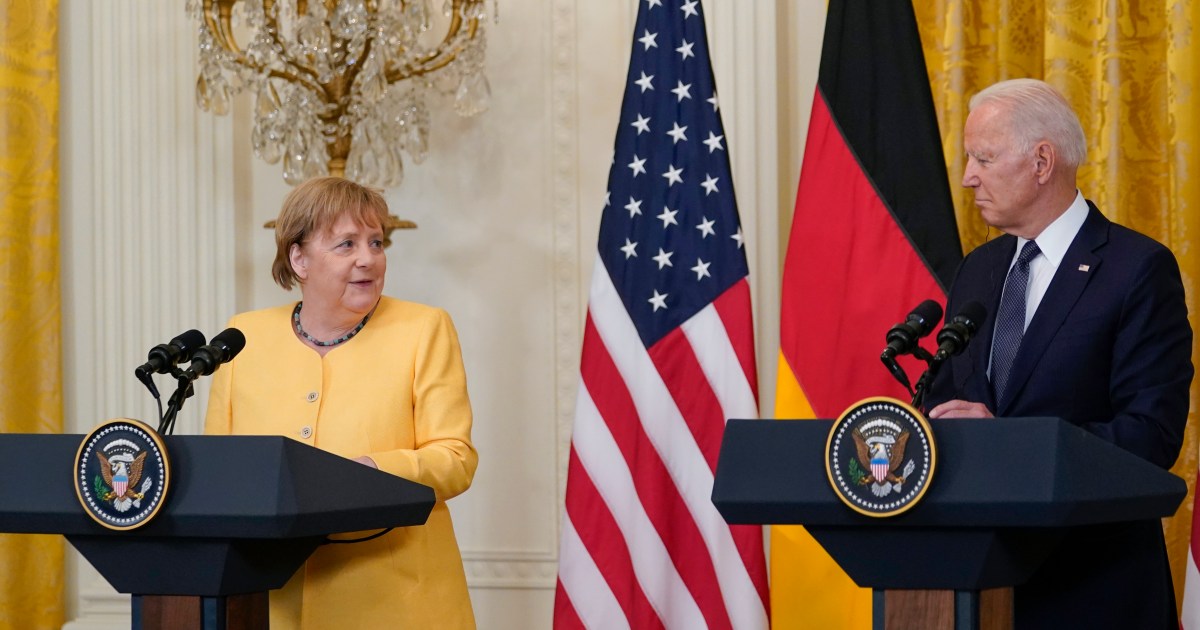[ad_1]
PARIS – The French government announced on Tuesday that it would abandon its plan to enshrine the fight against climate change in the Constitution, effectively renouncing what was considered a major step in the country’s environmental commitments.
Prime Minister Jean Castex, who announced the decision, said it followed a disagreement between the lower and upper houses of parliament over drafting an amendment that would have added environmental protection to the constitution.
“It is deeply regrettable, but the fight continues,” Castex told lawmakers in the National Assembly, the lower house of parliament.
It was a setback for President Emmanuel Macron, who had made constitutional change the symbolic backbone of his environmental policies. Mr Macron had even promised to hold a referendum on the issue, hoping to bolster his green credentials ahead of the presidential elections next year.
In recent months, the Macron government has faced major environmental protests and historical climatic trials. Critics say he has increasingly watered down his climate ambitions.
While Mr Castex accused the French Senate of blocking the constitutional amendment, climate activists and the green opposition blamed the government, saying it had never worked on a compromise that could have allowed the passage of ‘an amendment.
The idea of amending the Constitution was born among 150 people.Citizen’s Climate ConventionThat Mr. Macron put in place in 2019 to formulate ambitious climate legislation proposals.
In December, Mr Macron, eager to defuse criticism that he was not doing enough to protect the planet, announced that he was taking up the idea. He planned to call a referendum on including the fight against climate change in the constitution if a proposed constitutional amendment got parliamentary approval.
The National Assembly, dominated by the centrist party of Mr. Macron, La République en Marche, proposed to add that France “would guarantee the protection of the environment and biological diversity, and fight against climate change”.
But the members of the Senate – which is controlled by a right-wing party, The Republicans – opposed the word “guarantee,” which they said suggested that environmental concerns would take precedence over other constitutional principles such as free enterprise. Bruno Retailleau, leader of the Republicans in the Senate, denounced a formulation which, he argued, risked introducing “the virus of declining growth into our Constitution”.
The Senate proposed a new version of the amendment, committing France to “take measures to protect the environment”, but the National Assembly largely stuck to its wording. And after a second rejection by the Senate on Monday, Mr. Castex announced the end of the legislative process.
Climate activists and environmental politicians dismissed the argument over the wording of the amendment as a simple publicity stunt and said the government never tried to compromise on the amendment.
“It was easy to see, it was an acting game for months,” said Matthieu Orphelin, a lawmaker who left Macron’s party to join the green forces in 2019.
An environmental group, “Our ecological constitution“issued a statement calling it” constitutional reform which has been hijacked and undermined by political maneuvering from the start. “
A climate bill proposed by Mr. Macron has been the subject of similar criticism. Rejecting the measure as an overly cautious approach to climate change that favors corporate interests over ambitious actions, protesters flocked to the streets for several weekends in the spring.
Environmental concerns have gained ground in France in recent years, café terraces heated by external radiators in climate battlefields. Students from top universities have mobilized to demand environmental actions.
A series of landmark lawsuits have also increased pressure on the government to take action.
In February, a court ruled that France had caused “ecological damage” by insufficiently reducing its greenhouse gas emissions. And on Thursday, the country’s highest administrative court gave the government nine months to take “all necessary measures” to achieve its emissions reduction targets, under penalty of sanctions.
[ad_2]
Source Link






